BY: WALTER OPINDE
Haiti, a country situated on the Hispaniola Island in the Caribbean archipelago, is very rich in history, as it was home to the first successful slave revolt in and, subsequently, the first Black country to win its independence. The country shares the Caribbean archipelago (Island) with the Dominican Republic. The Caribbean region was inhabited by the indigenous Taino- Arawakan people and the Carib Indians. The limited historical records reveal a successive wave of Arawak immigrants moved from Orinoco Delta of South America towards the north, settling in the Caribbean Islands. Around the 600 AD, Arawak and Taino Indian cultures arrived in the islands, forcing out the original inhabitants. Afterward, the tumultuous history of Haiti followed, with it being the first Independent Black country, poverty, natural disasters, political instability, and racial discord soon followed.
Haitian history was mainly oral until the arrival of a European navigator from Spain- Christopher Columbus on 4th December 1492 to the vast islands of the Atlantic Ocean, which was later named at the Caribbean. The arrival of Mr. Columbus to the Caribbean regions automatically established the early Spanish domination of the region, hence the beginning of its colonization. Five decades after the arrival of Columbus, the pernicious influences of colonization were evident, including diseases outbreaks, accompanied by the brutal labor practices, which gradually wiped out most of the Native population. 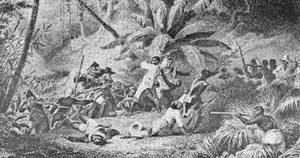
The Spanish occupation of Haiti went from 1492 to 1625, accompanied by slavery enterprises. Towards the late 17th century, the French were already competing with their Spanish counterparts for settlement and cultivation on the island. The French focused more on the agricultural activities, and soon enough, their adventurers began settling in the colony. This turned the French portion of the islands into sugar and coffee production areas. By the late 1780s, approximately 40% of sugar imported into France and the Great Britain, and 60% of the world’s distributed coffee were from this small Caribbean colony. The widespread slavery on the agricultural areas and brutality exhibited by the foreign powers on the original residents made the indigenous population dwindle. Slaves from Africa provided labor, which was very critical to the economic developments of Saint-Domingue (the French-dominated areas). Approximately 800,000 slaves arrived at the Caribbean Islands from Africa.
The rising rebellions and revolutions frustrated the Spanish settlers who gave up and set off from the Caribbean islands, leaving behind the French settlers. The growing slave populations added to the overall Caribbean population, leading to the increased racial diversity. The white population constituted the top class in the social structure. They owned shops, plantations, and several other frontiers of wealth. The middle class majorly constituted the indigenous people, while the lower class constituted the freed slaves. From 1625 to 1789, the French had completely taken over, setting up their colony to be strong and impactful. Mistreatments and brutality posed great threats to the plantations as the slaves escaped and abandoned the farms, followed by mass revolts. The freed blacks were already fighting for their social and civil rights, property rights, and the right to full citizenship. By the early 1790s, there was the dissolution of the Bourbon Dynasty through French Revolutions, followed by the Napoleonic wars. The widespread breakdown of the social and civil order prompted further revolutions, calling for the British and Spanish military interventions. By 1794, the French had no other choice but to abolish the slavery, and later in 1804, Haitians fought and won their independence, forever gaining the title as the first Black country in the world to do so.
Some questions to ask yourself are: Why is the history we are taught in school so skewed to frame Haiti as nothing more than its current socio-economic struggle, rather than the island of the first successful slave revolt and first independent Black country? Why does history aim to have Haiti’s rich and historic past completely overshadowed by its current unrest? Comment below.
Read more of the original story here.
Sources
Charles Mackenzie (1830). Notes on Haiti. London: H. Colburn and R. Bentley.
Clammer, Paul; Michael Grosberg; Jens Porup (2008). The Dominican Republic and Haiti. Lonely Planet. pp. 339, 330–333.
Girard, Philippe. Haiti: The Tumultuous History (New York: Palgrave, Sept. 2010).
Mackenzie, Charles. Notes on Haïti, made during a residence in that Republic, Vol. 1, London, Henry Colburn and Richard Bentley, 1830.
Google Photos Archives: Haiti-history-1904-PAP-Church-Procession-575×359
Google Photos Archives: History of Haiti, Revolution and Independence
Google Photos Archives: Map of Haiti
Google Photos: Haiti State Flag
Google Photos: Haiti-1930s-Marbial-Valley-by-the-Gosseline-River

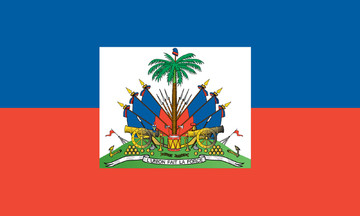





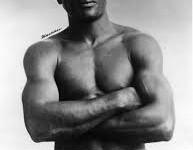

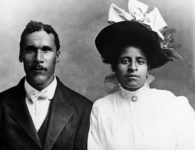








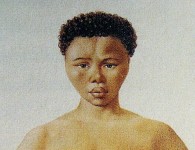


12 Comments
Stunning story there. What occurred after?
Good luck!
Greetings! Very useful advice in this particular article!
It is the little changes that produce the biggest changes.
Thanks for sharing!
of course like your website however you have to check the spelling on quite a few of your posts.
Many of them are rife with spelling issues and I to find it very troublesome
to tell the truth on the other hand I’ll certainly come back again.
I’m not sure exactly why but this website is
loading very slow for me. Is anyone else having this issue or is it
a problem on my end? I’ll check back later on and see if the problem still exists.
Attractive component of content. I simply stumbled upon your website and in accession capital to
say that I acquire actually enjoyed account your blog posts.
Any way I’ll be subscribing to your augment and even I success you get admission to constantly rapidly.
For hottest information you have to go to see internet and
on world-wide-web I found this web page as a most excellent
web page for most up-to-date updates.
I will right away grab your rss as I can’t to find your
e-mail subscription hyperlink or e-newsletter service.
Do you’ve any? Kindly let me recognize in order that I may subscribe.
Thanks.
Thanks for finally writing about >Black Then | Early History of Haiti: The First
Independent Black Country In The World <Liked it!
My partner and I stumbled over here by a different website and thought I might as well check things out.
I like what I see so now i am following you. Look forward to looking into
your web page yet again.
I blog frequently and I seriously appreciate your content.
This great article has truly peaked my interest.
I am going to bookmark your blog and keep checking for new details about once per
week. I opted in for your RSS feed too.
Wow, that’s what I was exploring for, what a material! existing here at this webpage, thanks admin of this web site.
Wow! How did you comoe up with atht coolpost?